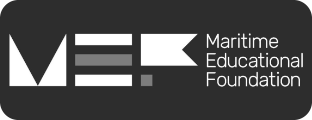Coming Ashore Podcast Episode 3 – About the Mentor Steve Cameron
Posted on 20 March 2020 by Andrew Cowderoy
On Episode 3 of the Coming Ashore podcast Andrew Cowderoy sits down with Coming Ashore mentor Steve Cameron. Continue on to hear about Steve Cameron’s transition from a career at sea, to launching his own consultancy business. Plus, find out how to market yourself to your network and the power of asking for help when transitioning your career.
Would you rather listen? Listen on Spotify and ITunes or watch now on YouTube.
Click here to find out more about the Coming Ashore programme. Where you'll find professional guidance, mentorship and work experience opportunities for transitioning to a career on land.
Andrew Cowderoy:
Hello ladies and gentlemen, and welcome to another episode of the Coming Ashore podcast from Marine Society. My name is Andrew Cowderoy and today we have a very special guest, a friend, a colleague, and a new mentor for the Coming Ashore Project. Steve Cameron started his career at sea, set course for a new career onshore, and I'll let him explain why he made that move. And now he's running an extremely successful consultancy and he's had a extremely interesting career. And to show the diversity of what you can do when you're coming ashore, the different industries, the different sectors that you can work in. Steve's networks and communicates with a lot of these experts from around the world. So thank you very much Steve for joining us.
Steve Cameron:
Well, it's a real pleasure to be here, Andrew. Whether I can live up to that introduction we'll find out. But thank you very much for that.
Andrew Cowderoy:
So to get us started, can you share with our audience or guests or listeners around the world, what made you decide to go to sea in the first place? What was that real, the purest why of why you went to see?
Steve Cameron:
It's combination of things actually. It seems such a long time ago now, I'm not sure I can answer that question particularly well. But I did struggle academically at school and I was more attuned with the practical things. And the thought of staying on at school after O levels and doing A levels did not fill me with a great deal of enthusiasm. And we had a school sailing club. I learned to sail and I spent my holidays working on farms and I felt far more attuned to an outdoor life, doing something practical and so decided on a seafaring course.
Andrew Cowderoy:
So can you explain on your seafaring course, I mean you went through the cadet ship, as many officers will have done, but can you explain to the listeners what type of ships did you sail on and perhaps why you had to come ashore. Why you made that decision?
Steve Cameron:
Okay. Well, I did the usual pre-sea training, which was a year then, when I was 16 at Nautical College. I signed a cadetship with the cargo division of Cunard and it was at the time, that the industry was moving from conventional shipping towards containerization. So it was a lot of change happening. But at the beginning, the cargo division of Cunard was quite broad.
So there was the conventional reefer ships, run under the logo Portland, which is the company that I signed up with. There were parcel tankers under H. E. Moss, general cargo ships under Brocklebank and a joint ownership of Atlantic Container Line and ACT Container Line. So a really broad range of different vessels just to train on. And I trained on the conventional reefer ships. We'd load general cargo around Europe and go out and discharge in Australia and load frozen meat, butter and cheese in New Zealand and come back through the Panama Canal. So quite often it was around the world trip. And it was a very pleasant existence. We carried a dozen passengers, so the food onboard was always very good.
Andrew Cowderoy:
Absolutely.
Steve Cameron:
And we were all officers and crew from the same company. So there was a lot more focus on the quality of one's training. There was very, very clear definitions of who was responsible for the officers and crew on board the ships. And whilst we took it all for granted at the time, it's only with hindsight that I realized quite how lucky I was to work in an organization with such high standards. I spent some time on small product carriers with H. E. Moss, which was interesting, loading highly dangerous flammable parcels of different cargoes that you must not mix in any shape or form. And did a little bit of time on them, on some of the conventional ships, some of the Brocklebank ships as well. By the time I had done that, it was time for my Second Mates ticket, but I discovered that I had some weaknesses with my eyesight and that I'd have to come ashore sooner or later. And I chose to come ashore earlier because I thought it'd be easier to make the transition early, rather than wait until I had been at sea for longer. And as luck would have it, a job came up in the office, I was asked to go up for an interview and in those days we had two sets of clothes in our wardrobe. Our uniforms, so when we were working onboard ship and what we used to call our going ashore gear.
So I turned up for my interview in my going ashore gear, which was not really appropriate for an office, more appropriate for a nightclub. But nevertheless, they still offered me the job, which to this day remains a surprise given the way I must have looked. And I was lucky enough too, for the first four years in my career ashore to work in different departments within Cunard's cargo offices, which gave me an introduction to working ashore. And if you like, it's a bit like an unstructured management training program, with my first year in operations, managing ships.
My second year working in fleet personnel, managing the deck officers, which was a real eye opener, when you find out what your colleagues have been up to. And where I also inherited, or discovered a long list of friends that I never knew I had, for all the seafarers that wanted me to get them a transfer from the cargo division to the passenger ship division.
Andrew Cowderoy:
Funny that.
Steve Cameron:
Yes, yes, made me very popular. And there are some stories there perhaps for another day. And then after I'd done four years there, I felt I'd got as far as I could within the organization. But what was interesting there, was just to see the range of jobs that existed for seafarers because all the departments, whether we were talking operations or engineering or catering, were all made up with ex-sea staff that had been at sea under those disciplines.
So for a lot of us, the way into a career ashore was through the operations department because most companies really valued having people in the operations department that understood what goes on onboard a ship. When they were talking to the master on the telephone, they were sharing, if you'd like the same things about what was actually happening, and the captain was confident he was talking to somebody that understood what his problems were. So there were a number, that had come ashore early in our careers and there are others that had stayed and got their Masters tickets.
And if you remember the event that we were both at where we had this debate onboard HQS Wellington, and we had speakers across different sectors of the industry, including yourself. It was interesting to hear from those of us that come ashore early and those that had stayed at sea to get their Masters tickets. And everybody was informed by their own experience. And what was clear, was there was no right or wrong answer. It's just what happens to be best for you at that particular moment in time.
And certainly, if people aren't sure which route to take, but they know they want to come ashore, but they are happy at sea, then I would say it's definitely valuable to stay, get your Masters ticket-
... before you come ashore because it gives you greater value and it gives you a benchmark that people respect.
Steve Cameron:
But having said that, there are a lot of roles open to people that can start at a junior level and you can progress into a whole range of different sectors of the industry, whether it's the sales and marketing department or whether it's broking and doing your Institute of Chartered Shipbrokers Exams or any aspect to running a business, you'll find in the shipping industry.
Andrew Cowderoy:
So to summarize that small bit, it's a huge amount of experience and a huge amount that we can start to pull on and share with our colleagues. So you went through a traditional career at sea, started your training, got your Officer of the Watch Ticket, enjoyed worldly travels with your friends, experienced cultures, working together as a team, all these skills that you can then bring into your career onshore. And that move was, dare I use the words perhaps slightly easier because a position became available within the office of the company that you were already working. And you worked in the office and then you started on the vast career experience that you've had.
So jumping into a few bits again, of what you've said, you talk about where are people's experiences and how they can be placed into different organizations and different roles. Now, can you share with, I guess the roles that you... We've talked about Cunard. Now jumping forward a few years, bypassing O.T. Africa Line, and we'll come back to that, can you share with them your recruitment and headhunting experience? And so then what somebody onboard a ship should be thinking about when they start to think about when they come ashore in terms of, "How can my experiences transfer into a role onshore," if that makes sense.
Steve Cameron:
Sure. With some of the work that we've done, where we've looked at that process of coming ashore, it's interesting to see that the more informed organizations will provide or facilitate opportunities for seafarers to spend some time in the office. So even if you haven't said, "I'm planning to come ashore," there may be opportunities to work on projects, there may be opportunities to come work in the office during your leave. And I would say to anybody that is still at sea, be proactive and look for those opportunities because the more that time you can spend in the office understanding the commercial aspects of the business, the more you can raise your profile in the office and get known, then the greater the chance of you either getting a job with the organization you're at sea with or getting ashore job with another organization because of the fact that you've worked on some projects in the office.
And I was speaking to a colleague of mine who was at sea with Zodiac and when he said to them, "I'm thinking of coming ashore." They brought him ashore and put him in the projects department where he worked for six months before he went back to sea. And sailed as a master. And he said that time for him was invaluable because it opened his eyes to the commercial process behind all the decisions that get made about ships, when to sail, which ports to go to, decisions about which cargo to load, which cargo to leave behind. And it enabled him to make better value decisions with that knowledge as a consequence.
So for seafarers thinking about coming ashore, it's really important to look for those opportunities because it provides information on the CV that adds value. And with the headhunting and recruiting that we were doing when I started CMR, a lot of our time was spent actually sitting with candidates, helping them knock their CV into shape. And quite often we have skills that we're so close to, that we take them for granted. We develop good leadership skills as seafarers. We develop good intercultural skills, being able to work with, manage people from different cultures from all around the world. And we have a very much of a can-do attitude when it comes to problem solving. And this works extremely well and is very effective in an office environment as well.
So I would spend time with the people that are coming shore and get them to talk about their strengths and their preferences. And as a consequence of going through that process, we pretty always list additional skills that they've got, that they haven't fully appreciated. And really it's trying to understand where one's strengths and preferences are and how that would fit into different roles in ashore place job. It can be very difficult to actually make that decision until you've worked in an office because you may not fully appreciate how your skills may fit.
So a chance for time spent in any organization and then perhaps whilst you're on leave, for work experience is a great way of building up your understanding of what's available and what you're suited to.
Andrew Cowderoy:
So there's a whole range of points, again, I want to pick up and just reiterate. So for colleagues coming ashore, if you are interested in coming ashore, I think that would be extremely valuable point to say is, it's been said and we'll say it again and again, is to actually say put your hand up and say, "Perhaps I need a bit of help," or indeed to your colleagues onshore and say, "Actually I'm considering a role inshore in the office. Can I perhaps come and spend some time experiencing what it's actually like to work inside an office?" To build up that CV as well as just general experience. And is it the right fit for you and your personal preferences, but also your career history.
And it's something, if your organization or your company aren't able to support, it is part of the process in the Coming Ashore Project where we will be working with partners to provide that work experience opportunity, so you can actually take that during your short leave, visit an office, learn about P&I, learn about ship brokerage, learn about the legal aspects, etc. etc. So again, jumping back into your personal story a bit behind the mentor, most like myself, I'm not hugely academic, I went to sea and just showing how you don't have to have a Masters ticket or indeed perhaps the best academic grades.
You jumping into your career, again, you went from Cunard and then, it was O.T. Africa Line after that. Can you explain, what you did that there, the roles that you took on the work that you're doing? Again, to share with our colleagues that you don't necessarily have to have the best school grades to be able to have such a diverse and exciting career onshore.
Steve Cameron:
That's right, Andrew. It's not just about school grades. And school grades give an indication of one's academic abilities but don't necessarily reflect the personal skills that you've gotten. And some of the larger organizations that used to select their sea staff purely on academic qualifications started to realize that the picking the brightest people from some of the nautical colleges from around the world, you get people that were very clever and could pass exams, but they weren't necessarily providing the leadership material that's needed at sea. And so now a lot of companies are not just looking for academic grades, but they're looking for leadership qualities.
Why train somebody towards being a chief officer or a master if they don't leadership skills? So and having that operation experience, even if you've only been at sea for a short period, gives you a value that a lot of companies are interested in. And in my case, I happened to have worked in a fledgling container service that Cunard had started to the middle East. So I had both ship operations experience and container logistics experience, which at the time was sought after.
And when I joined O.T. Africa Line, they needed somebody in their operations department that had both those skills primarily to run their vessels, but also to help with the landside logistics as well. We were a new team. I think there was only 12 of us when I joined the organization. We were new to running a shipping line to West Africa. We were new to each other. So we had to go through a lot of training and a lot of understanding about teamwork, leadership skills to bring the team together. And running a shipping line to Africa is unlike other parts of the world. It's very much a hands-on business and when things go wrong you have to get on an airplane, go down to Africa, sort the problem out.
The upside is that in that environment, with only a small amount of effort and focus, you can really make some big differences and really improve the operation and raise the standards. So it was through the time and effort that we spent with training our staff that we were able to compete and take market share from our competitors that were bigger, have been in the trade much longer. Because our people had been better trained and they had more knowledge about the business. Every new hire had to do a ship visit. Everybody in the sales department had to do a ship rotation. Every management trainee had to spend two months in Africa. And as a consequence of that, everybody in the organization was able to add greater value to their conversations with our clients.
And as the organization grew, we all grew and we may have been the same team of people, but we went from being technical managers, running our own departments, in my case ship operations and running big roll-on/roll-off ships to Africa is a challenge as well as big exciting.
But as the organization grew, we grew with it. So we went from being a team of people managing a business to a board of directors, looking at the risk exposure of running a shipping line to West Africa and the risk exposure of the investments that we were making in assets and the ships, containers, cargo handling equipment.
Andrew Cowderoy:
So I mean there is a prime example of how you don't have to have these academic qualities. You don't necessarily have to have a Masters ticket to have a already in a relatively short period of time, an extremely exciting career. Move ashore, work in an office and then throughout their time at O.T. Africa Line, go from a small team, working together, being humans, being seafarers, having that ability to interact with another, work together and drop Steve or any of the other team into interesting and exciting environment and they'll thrive. And make your way up to board level.
So again, it's just to show that, and share with our colleagues that, don't be put off by what the paper says. Don't be put off by, "I don't have a Masters ticket. I don't even perhaps even have an Officer of the Watch ticket or a certificate of competency." You have a huge amount of experience and you're sitting on a mountain of value that you can actually thrive on and you can work towards.
So after O.T. Africa Line, again, showing a bit of the background behind the mentor, can you explain... So it was CMR after O.T. Africa Line and then that's when we started to link up, became the Hon Company of Master Mariners, RTI. And you can just share that to post O.T. Africa Line, the work and experience that you've done, in a bit of a nutshell.
Steve Cameron:
Okay. I think that because we'd had 20 years of developing a business. And in a small organization you have the advantage of getting involved in all the processes of the business. So you might be negotiating your Port of Stevedoring contracts or lease agreements with the container suppliers, but you're also looking at contracts for agents. You're looking at charter parties for fixing ships. You're looking at your risk exposure. You're looking at the cashflow on a weekly basis. And you're looking at how you're marketing the organization. How your profile is in the marketplace, how you're interfacing with your customers.
So all of these things came together for me in a very lucky way because it enabled me to set up my business. And if I hadn't had that experience then it would have been a lot more difficult. So when we started, a lot of the work was headhunting and recruiting and it was very clear that a lot of shipping lines did want junior people. They particularly wanted seafarers because of the experience they'd had that translates ashore. And in particular a lot of companies wanted people that had worked in an office in some capacity. And even if they'd only had two years experience, then that combination gave them value the shipping lines were very key to acquire.
Andrew Cowderoy:
So just touching on that actually, you decided setting up your own business versus the role, can you explain why you, and I guess, personal and for our colleagues, why you said rather than transitioning, rather moving to another company, why you made that decision to set up your own company versus working for another?
Steve Cameron:
There's an admission here. It didn't happen as a consequence of planning. It was a happy accident. And a friend of mine who I've worked with, who's a port economist and does forecasting for ports and terminals said, "Why don't you come and work with me while you're looking around for another job? You know the industry, you could market my services and we can work together." So that's how it started. And I found after three months that I was so busy marketing the skills and services that we got together, that I was too busy to look for a full time job. And so that's the way that it developed.
Andrew Cowderoy:
So, again, you talked about sales, marketing and that aspect as well. Just touching on the diverse career opportunities that there are for somebody coming in ashore. We've done operations, we've done commercial management, we've done HR, we've done headhunting and now we're going into sales and marketing and the role that you play and do public relations as well within the industry. Can you just lightly add some seasoning to that?
Steve Cameron:
If you're involved in running your own business, you have to understand how sales and marketing and PR works. The technical skills alone are not enough. And nowadays, most young people already have those skills because they're using social media. And effectively you're marketing yourself to your network of friends and colleagues. And when we started our business, I discovered something, which I call the rule of two. If you pick up the phone and say, "Hello, I'm Steve Cameron and this is CMR and this is what we do." You could hear the person, either would go, "Oh, yes that's very interesting. Why don't you call me back in a couple of months time?" And that would be the end of the conversation. If I'd found somebody up and I'd written an article that appeared in WorldCargo News or Port Strategy, they'd say, "Oh yes, I think, didn't I see that article that you wrote a few months ago? Why don't you come and have a conversation with us?"
So that's what I called the rule of two. That if you've already got a profile, so that when you pick up the phone to talk to people, you are recognized, you can start the conversation from a much more forward position in terms of the relationship. And so I think that's really important. And as people develop their careers, getting out and working on projects that add some additional value to your CV, getting out and going to conferences, getting the opportunity to speak at events, as you do. These are all really important things in terms of giving you, A, good personal skills but B, raising your profile in the industry that will help you network and help you add value.
Andrew Cowderoy:
So again, a few interesting points I want to pick up so we can reiterate them and remember them as colleagues at sea. Change your perspective from, "I'm going out to look for, perhaps a new job." And actually start to think of ourselves as a brand. There's a product in ourselves and build on, from the headhunting discussion, that mountain of value and then get out and meet and mingle with our colleagues around the world, raising that profile so you start to stand up at scale and more opportunities will start to arise.
Steve Cameron:
Absolutely. I mean it's just so important. You can't do it all from behind the desk on your computer. You've got to get out and meet people.
Andrew Cowderoy:
Thank you so much for listening. Unfortunately there was a slight technical issue on the day of filming with Steve. I will certainly be welcoming Steve back because it's very easy to keep talking and talking with the gentleman. If you want to find out more about the work that Steve does, visit he's website at Cameron Maritime Resources, the link will be in the bio. If you want to learn more about the Coming Ashore Project, please visit the Marine Society's website. Click on the Coming Ashore link at the top of the bar, fill out the form and we'll send you a quick questionnaire. If you want to be enrolled in the program.
This podcast was presented by the Marine Society. If you want to find out more about the coming ashore project, be sure to subscribe to the channels podcast on YouTube, Spotify, iTunes. Visit us on Instagram, Twitter, Facebook, LinkedIn, or visit the Marine Society website.
For more information on the Marine Society's Coming Ashore program, including information on mentorship, please visit our Coming Ashore page.





